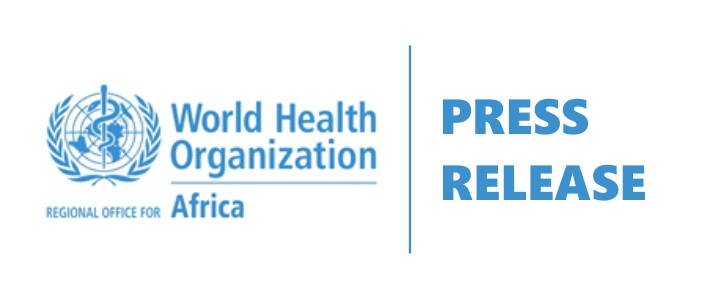
Message of the Regional Director, Dr Matshidiso Moeti, on the occasion of the World Cancer Day 2019
On 4 February 2019, we commemorate World Cancer Day under the theme: “I am and I will”. This theme was chosen as a reminder of the important actions that we can – and need – to take as individuals, groups, communities and political leaders, to reduce the impact of cancer on our lives.
Cancer continues to be one of the leading causes of mortality worldwide. New cases and deaths from cancer continue to rise. In 2012, there were 14 million new cases and 8.2 million deaths, whereas in 2018 there were 18.1 million new cases and 9.6 million deaths. If current trends are maintained, the cancer burden in Africa is projected to double from 1,055,172 new cancer cases in 2018 to 2,123,245 cancer cases by 2040. Among the most important serious challenges facing cancer patients in most African countries are poverty, late and poor cancer diagnosis and lack of medical cover.
The key drivers of the increasing cancer burden in Africa include increasing exposure to known cancer risk factors, such as tobacco use, sedentary lifestyle, unhealthy diets, alcohol use and environmental pollution. Additional contributing factors in the rise of the cancer burden in Africa are the epidemiologic and demographic changes that are currently taking place. In short, the cancer burden is increasing as Africans are now living longer, in large part because of improvements in the control of the infectious causes of mortality and morbidity.
Among the factors responsible for the high cancer burden in Africa are the absence of widely available information on the early signs and symptoms of cancer, late diagnosis, misdiagnosis, absence/weak referral systems, difficult access to care and treatment, catastrophic costs of treatment and medicines, and weak health care systems. Only 26% of low-income countries around the world reported having public sector pathology services, and only 30% of these countries had cancer treatment services; however, 90% of high-income countries can offer such services.
Significant progress has been achieved in diagnostics and treatment of cancers in high-income countries. This has resulted in better prognosis and enhanced survival rates for cancers in high-income countries with 5-year survival as high as 80-90% for cancers that can be treated when detected early. Sadly, most cancer patients in Africa are diagnosed at a late stage and the prognosis for a positive outcome is lessened, even in cases where treatment is available and affordable.
Cancer diagnosis should not represent a death sentence in Africa, nor should it lead to catastrophic expenditure following out-of-pocket payments for diagnostic, treatment and palliative care. A future without cancer is within our individual and collective grasp. As this year’s theme enjoins us, let us all individually and collectively resolve to end the injustice of preventable suffering from cancer as part of our commitment for Universal Health Coverage and the larger push to leave no one behind. Thousands of lives can be saved in Africa with proper cancer prevention, early detection, access to proper treatment and care.
I urge all stakeholders and specifically African governments, be they at the local, state, provincial, national or supranational level, to create an environment in which cancer risk factors, for example alcohol and tobacco use, are reduced, and citizens maintain good levels of physical activity, healthy bodyweight, and good nutrition. Cancer prevention and the creation of a culture of health is an essential mission of government, beyond that of the traditional health-focused departments, for example health ministries. Stakeholders should address the current inadequate access to cancer diagnostics and therapies, the lack of knowledge on cancer and low health literacy levels, culturally inappropriate cancer prevention materials, mistrust of the health care system, and fatalism regarding cancer cure.
I encourage individuals to engage in and adopt healthy lifestyle habits. Behavioural activities, such as eating a proper diet, both in the type and amount of food, engaging in appropriate exercise and physical activity, and receiving appropriate clinical interventions to prevent cancer, are important. Remaining healthy also involves vaccination against cancer, such as liver and cervical cancers, avoiding known causes of cancer, and careful management of exposure to other carcinogens.
I count on you to take sustained actions and get involved any way you can because together, we can create changes and defeat cancer!
Thank you.



